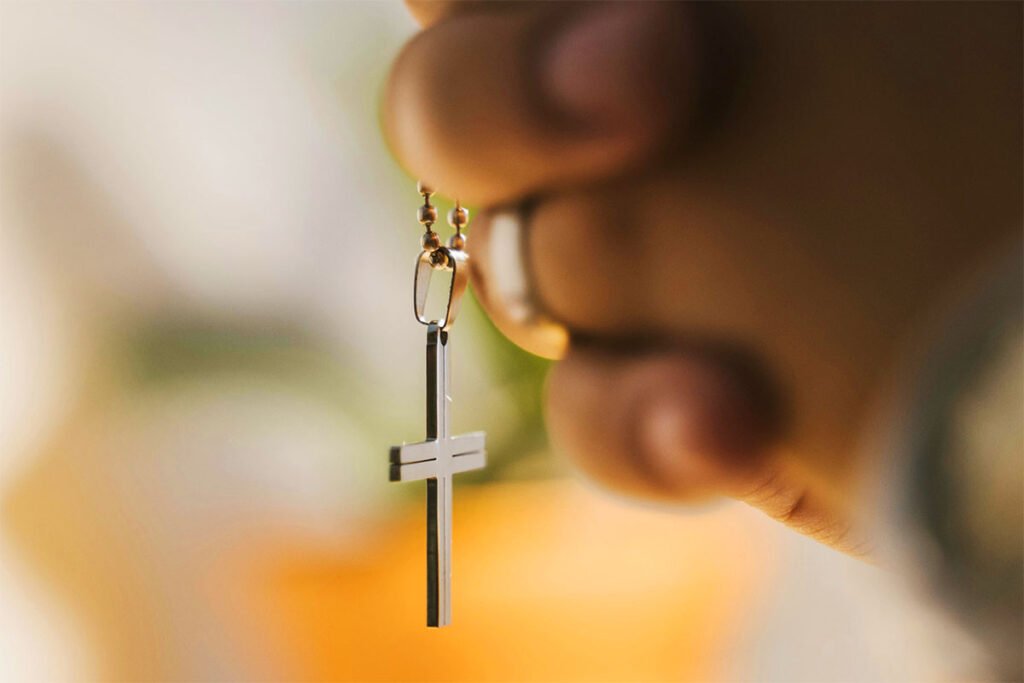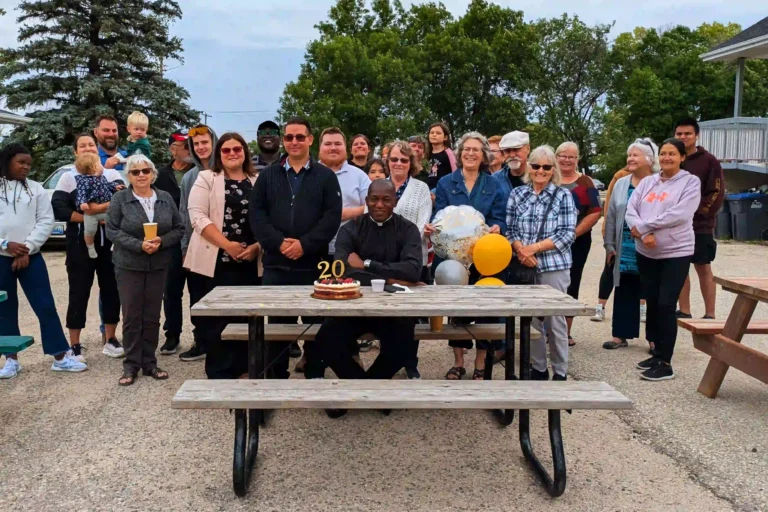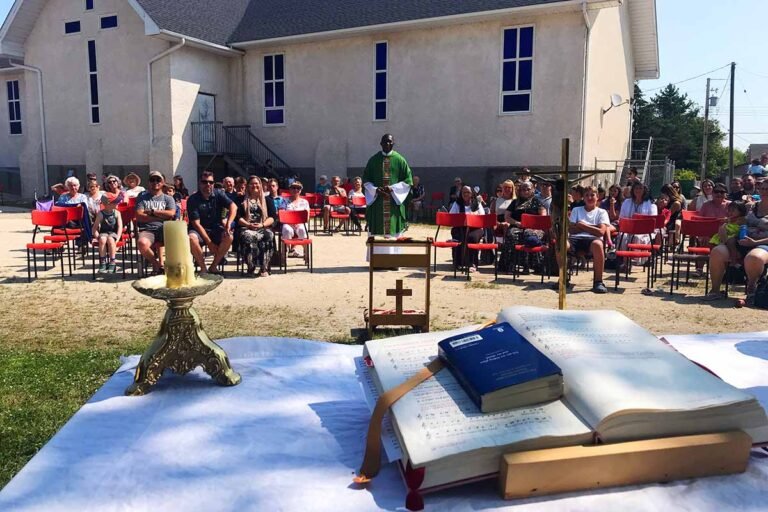In an update shared in our last bulletin, for the remainder of the year, the Nicene Creed will be recited as part of Mass, replacing the Apostle’s Creed. This change marks a special anniversary—a celebration of the 1700th year since the Nicene Creed was adopted in 325 by the Bishops of the First Council of Nicaea. We invite all parishioners to join us in this historic commemoration, embracing this ancient prayer that has united Christians for centuries.
The Nicene Creed: A Prayer of Faith
Here is the text of the Nicene Creed, which we will proclaim together each Sunday:
“I believe in one God, the Father almighty, maker of heaven and earth, of all things visible and invisible. I believe in one Lord Jesus Christ, the Only Begotten Son of God, born of the Father before all ages. God from God, Light from Light, true God from true God, begotten, not made, consubstantial with the Father; through him all things were made. For us men and for our salvation he came down from heaven, and by the Holy Spirit was incarnate of the Virgin Mary, and became man. For our sake he was crucified under Pontius Pilate, he suffered death and was buried, and rose again on the third day in accordance with the Scriptures. He ascended into heaven and is seated at the right hand of the Father. He will come again in glory to judge the living and the dead and his kingdom will have no end. I believe in the Holy Spirit, the Lord, the giver of life, who proceeds from the Father and the Son, who with the Father and the Son is adored and glorified, who has spoken through the prophets. I believe in one, holy, catholic and apostolic Church. I confess one Baptism for the forgiveness of sins and I look forward to the resurrection of the dead and the life of the world to come. Amen.”
The History and Significance of the Nicene Creed
The Nicene Creed emerged from the First Council of Nicaea, convened in 325 AD in what is now Iznik, Turkey, under the guidance of Emperor Constantine. This gathering of over 300 bishops addressed a critical theological dispute about the nature of Jesus Christ, sparked by the teachings of Arius, who claimed that Jesus was a created being and not fully divine. To affirm the true divinity of Christ, the bishops crafted this creed, declaring Him “consubstantial with the Father”—of the same substance—rooting the statement in Scripture, such as John 1:1 (“In the beginning was the Word, and the Word was with God, and the Word was God”).
This creed was later refined at the Council of Constantinople in 381 AD, adding details about the Holy Spirit and the Church, making it the definitive statement of Christian belief we use today. Its adoption 1700 years ago was a defining moment, uniting the early Church and providing a foundation for Christian doctrine that has endured through the ages.
Why We Say the Nicene Creed
Reciting the Nicene Creed during Mass is more than a tradition—it’s a profound act of faith and unity. This prayer encapsulates the core beliefs of Christianity, from the Trinity to the Incarnation, Crucifixion, and Resurrection. By proclaiming it together, we join a global community of believers, past and present, in affirming our shared faith. It serves as a public witness to our beliefs, a reminder of the sacrifices made to preserve them, and a call to live them out.
This year’s shift to the Nicene Creed is especially significant as we honor its 1700th anniversary. It’s a chance to reflect on the courage of those early bishops who, despite division and persecution, stood firm in truth. For parishioners, this practice can deepen your understanding of your faith, connecting you to the early Church and its struggles. It also invites personal reflection—how do these ancient words shape your life today?
An Insightful Celebration
Interestingly, the Nicene Creed’s language reflects the cultural and philosophical context of its time, using terms like “consubstantial” to bridge Greek philosophy with Christian theology. This blend highlights the Church’s effort to make the faith accessible yet profound. As we recite it, consider the diversity of voices—Greek, Latin, and beyond—that have shaped its wording over centuries, yet its message remains timeless.
We encourage you to embrace this opportunity to learn and grow. Bring the Nicene Creed into your personal prayers, discuss its meaning with family or friends, and join us each Sunday at Mass starting March 9th. Together, let’s celebrate 1700 years of this sacred prayer, strengthening our faith and our community at Notre Dame Du Laus.




